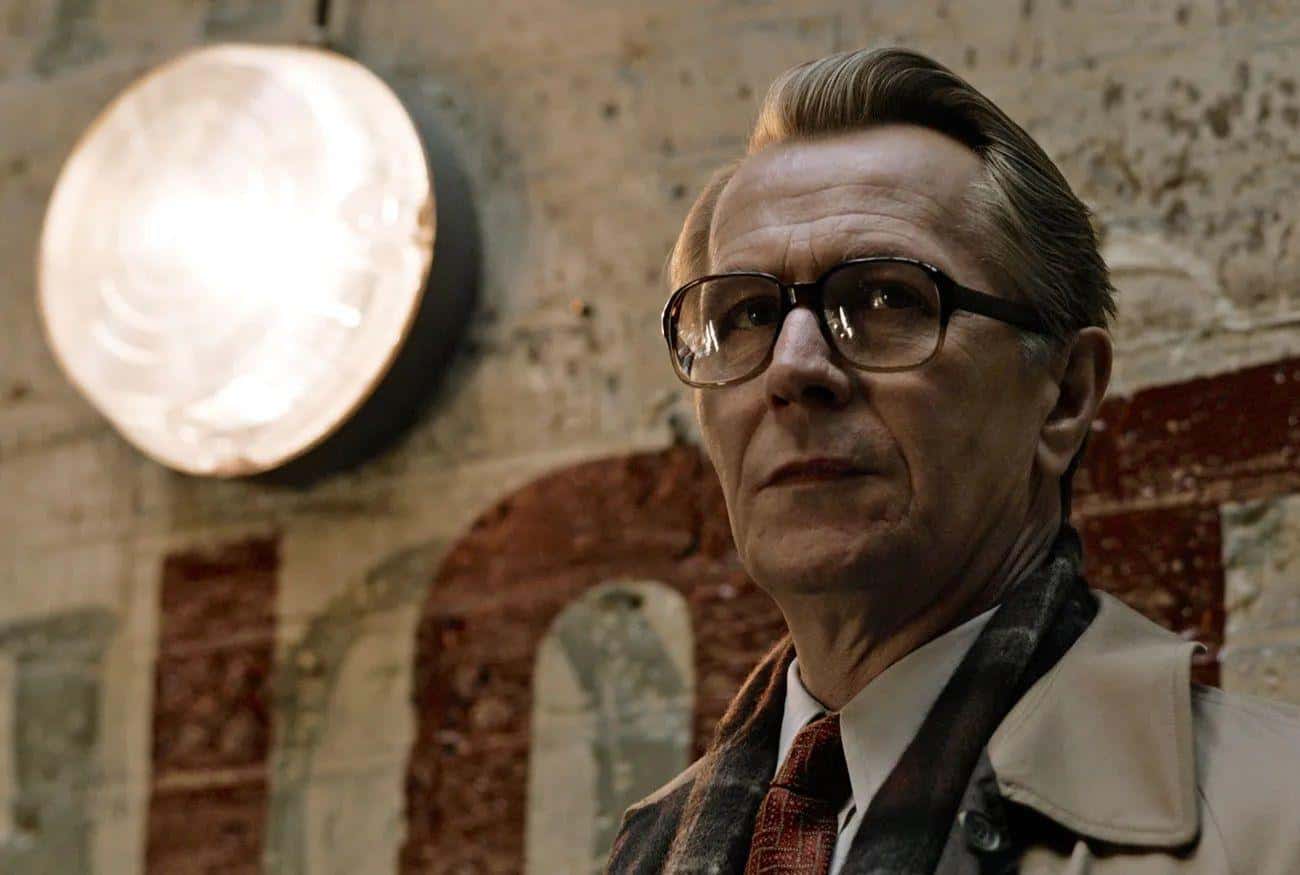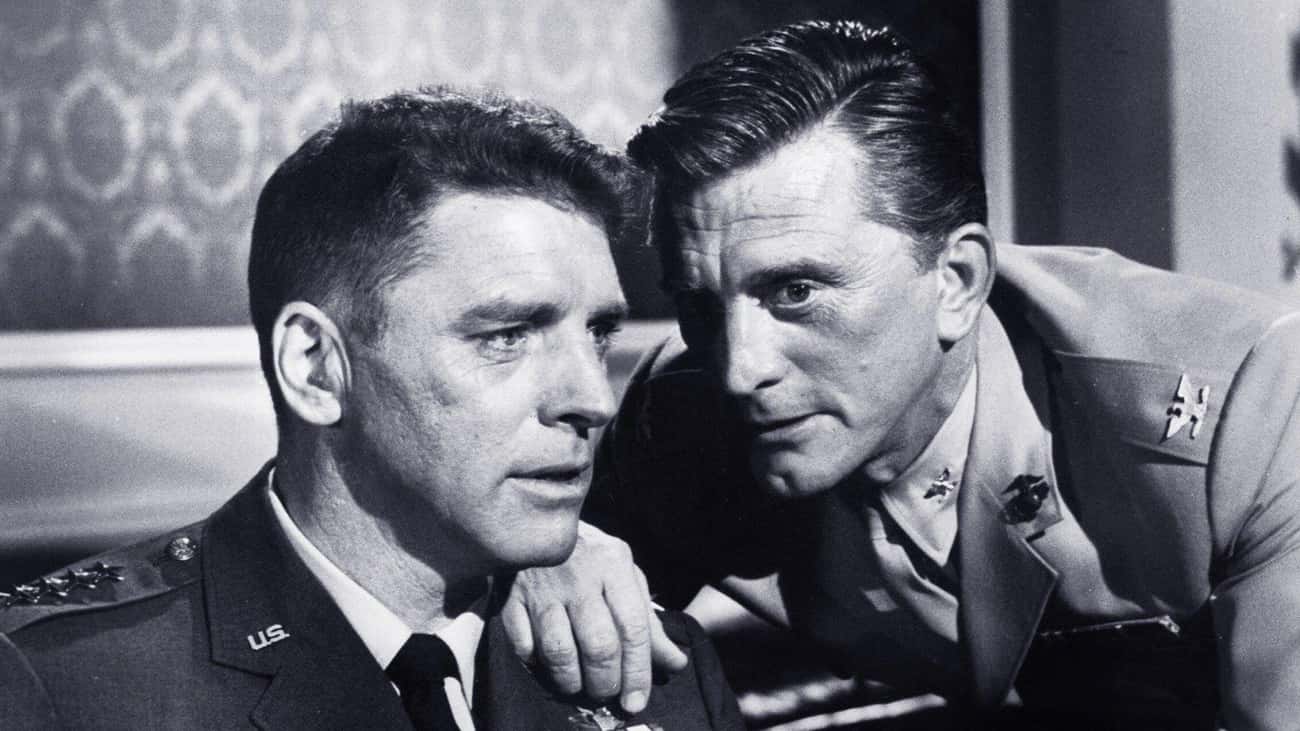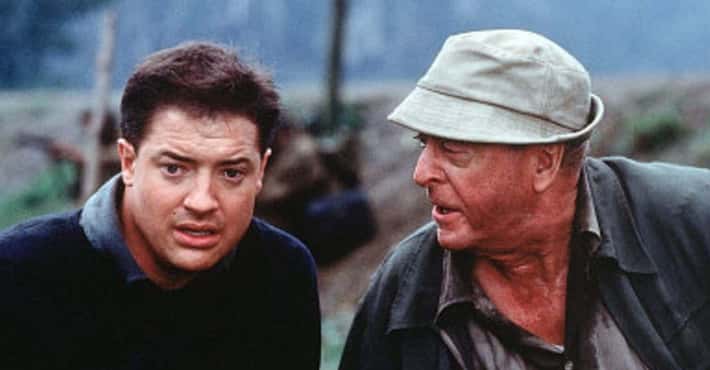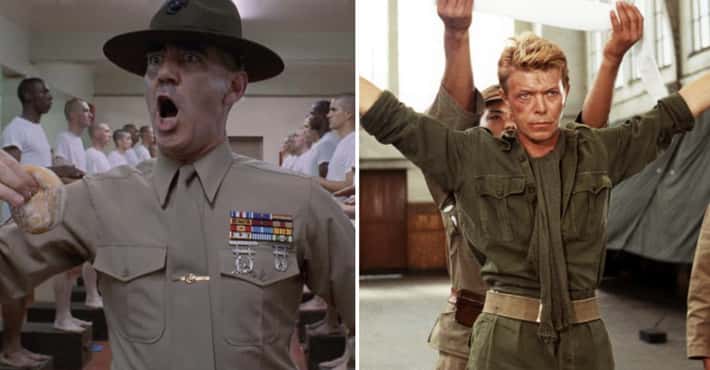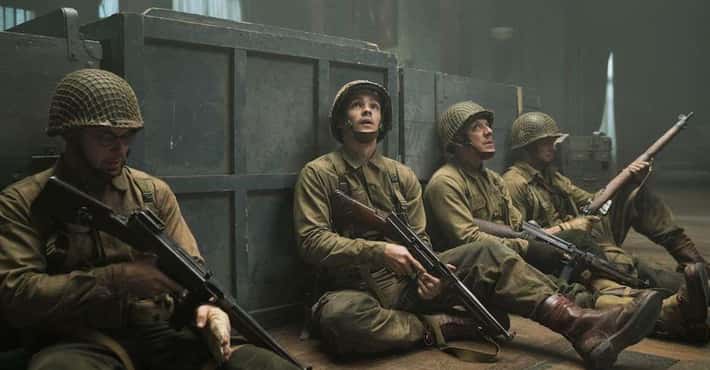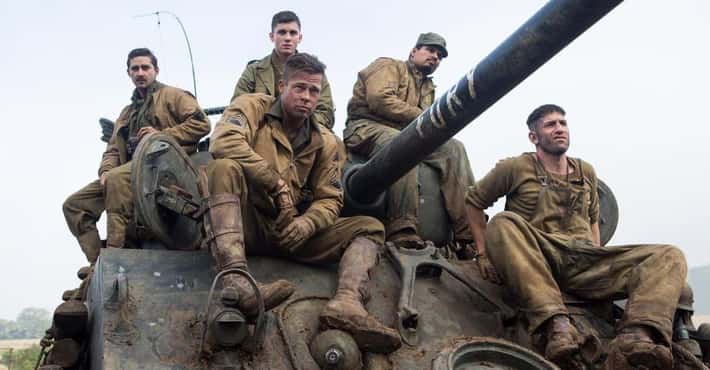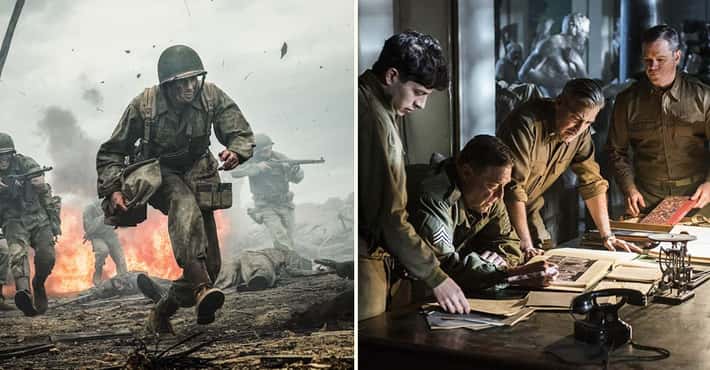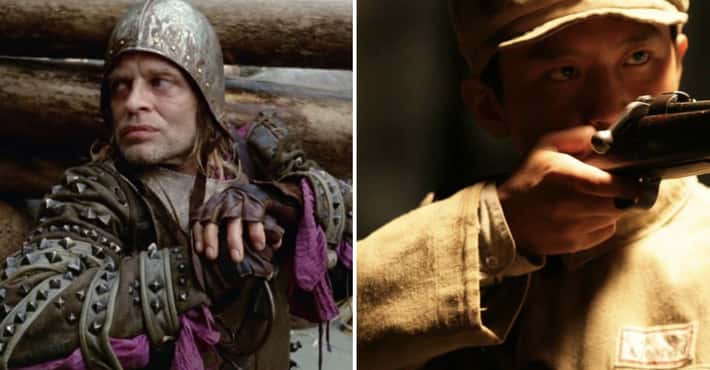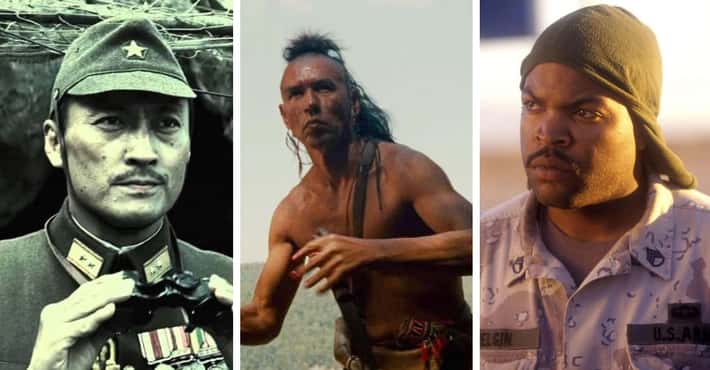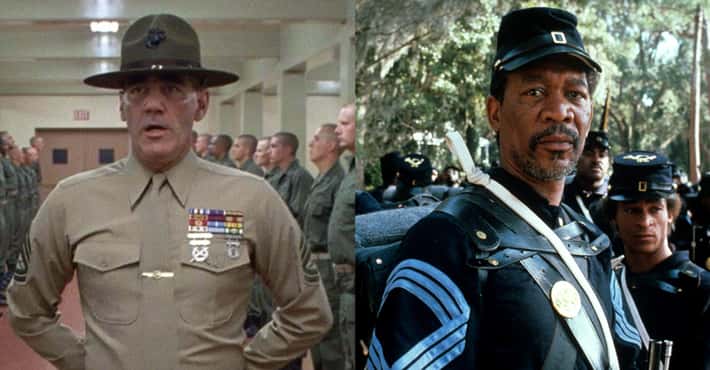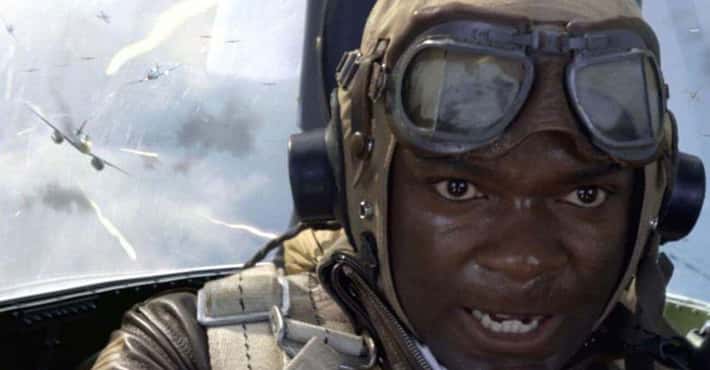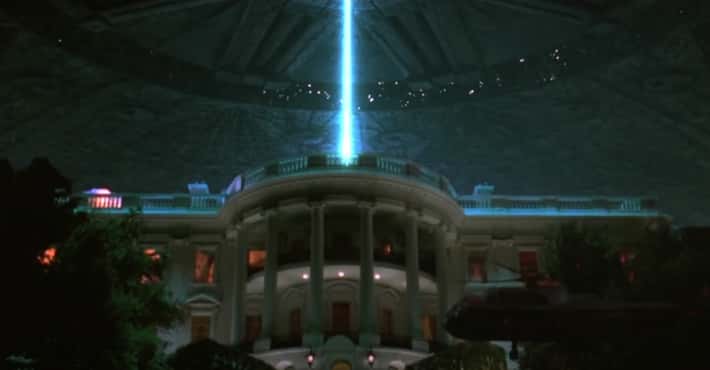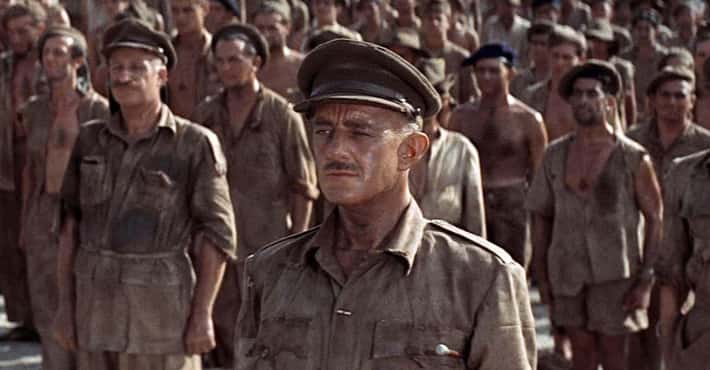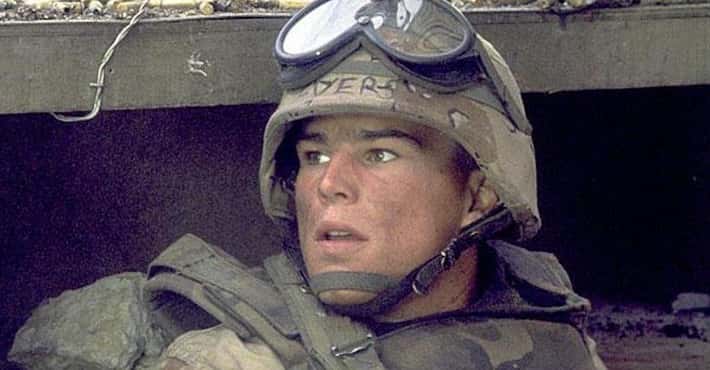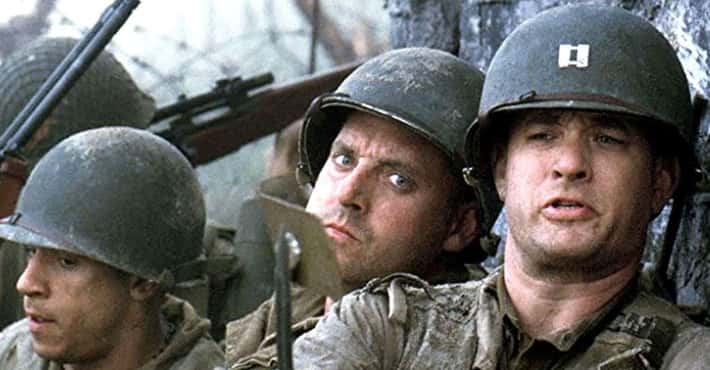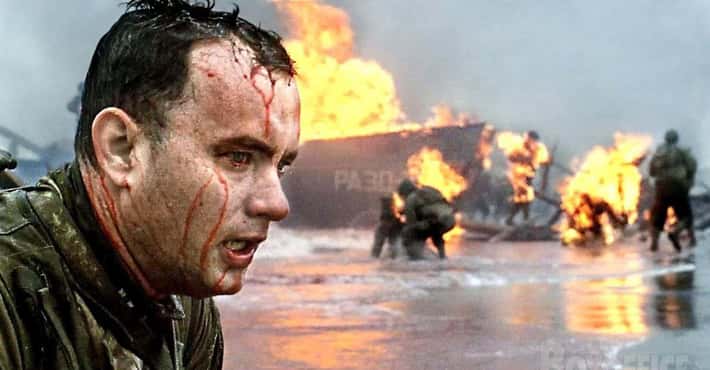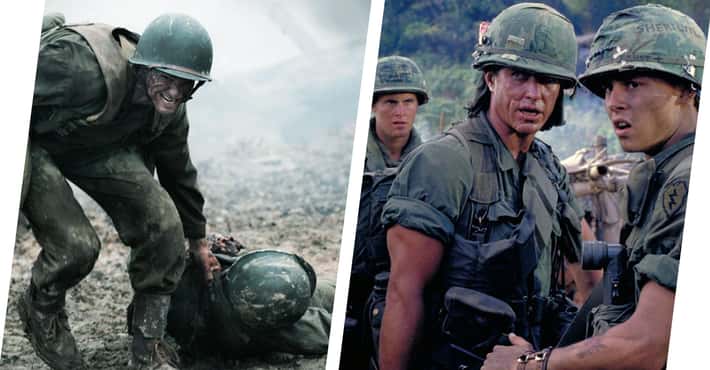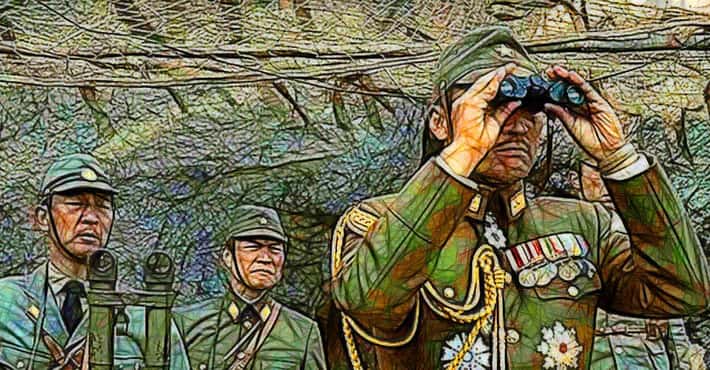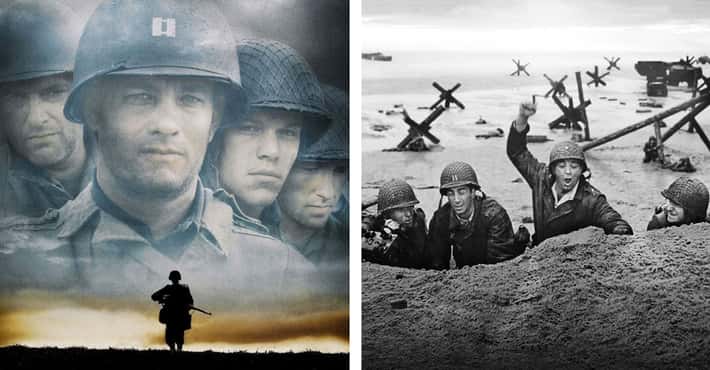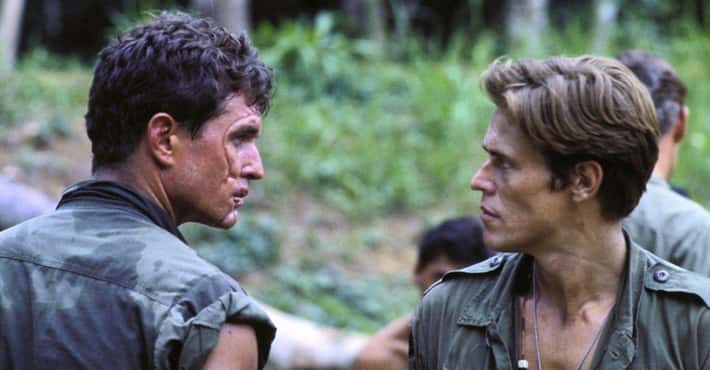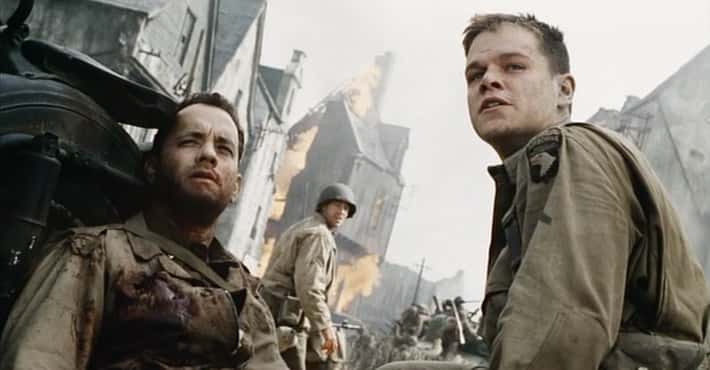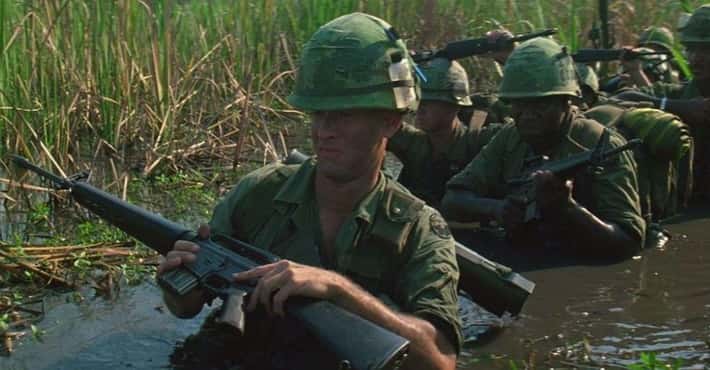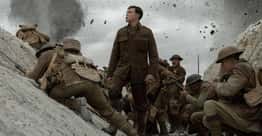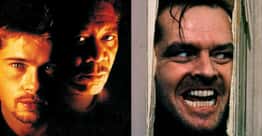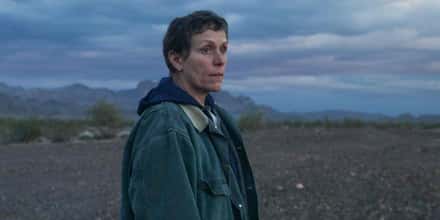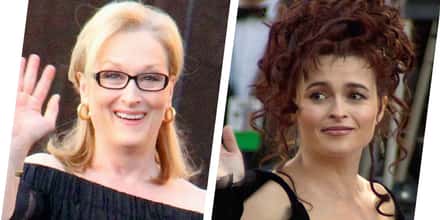18 Underrated Movies About The Cold War
Vote up the most underappreciated Cold War movies.
The Cold War lasted an astonishing 45 years. It began in 1947 with the defeat of Axis powers in WWII and ended in 1991 with the destruction of the Berlin Wall. In between all that was a series of complex, tenuous interactions between the United States and Russia. The two countries never engaged in direct combat. The Cold War was carried out via threats, intimidation, espionage, and other means.
Although it was a scary time to be alive, given the pervasive potential for nuclear war, those decades inspired some great art, including movies and TV dramas. The following underrated films all use the Cold War as the setting for their stories. In various genres - from drama, to comedy, to romance - they take viewers inside that turbulent time, often paying great attention to realistic details. Cinema has always reflected what's happening in the real world, and these movies help paint a portrait of what the Cold War was all about.
- Photo: Warner Bros.1622 VOTES
Of course Clint Eastwood made a Cold War thriller. How could he not? 1982's Firefox cast him as pilot Mitchell Gant. He's assigned to carry out a special mission that entails sneaking into the Soviet Union to steal a high-tech Russian fighter plane. Once he accomplishes that, he's got to dogfight his way back to the States.
Many of Eastwood's action pictures involve him using guns, so Firefox puts a twist on what audiences expect by giving him something more high-powered. The flying sequences are good for their day, and the star makes excellent use of his laconic tough-guy persona. Despite the big Cold War setting, the movie is designed mostly as escapist entertainment, and on that level, it provides a suitably fun time.
More Firefox- #47 of 67 onThe Best Movies Of 1982
- #9 of 17 onFly Into The Action With The 17 Best Fighter Jet Movies
- #124 of 166 onThe Best Military Movies Ever Made
- Photo: MGM/UA Entertainment Company2562 VOTES
When it was released in 1983, WarGames helped to explain the threat of the Cold War to its youthful target audience. Matthew Broderick plays David Lightman, a high school student with a knack for computer hacking. He taps into the military's system, inadvertently launching a “game” called Global Thermonuclear War that causes US defense systems to activate and prepare for a nuclear attack on Russia.
The idea of a teenager nearly provoking WWIII was sufficiently tense to make WarGames a hit. But the movie also conveyed the tentative nature of US-Russian relationships at the time. The movie shows how suspicion and mistrust were so high that any little thing could have potentially accelerated the conflict to a tragic place. Broderick is excellent in the film, as is Ally Sheedy as David's girlfriend. An anti-war theme becomes clear at the end, adding emotional weight.
More WarGames- #1 of 49 onThe 45+ Very Best Movies About Hackers
- #501 of 769 onThe Most Rewatchable Movies
- #68 of 399 onThe Best Movies Of The 1980s, Ranked
- 3520 VOTES
Crimson Tide (1995) explores the back-and-forth that partially defined the Cold War, which is to say the debate over how aggressively America should act toward Russia. Capt. Frank Ramsey (Gene Hackman) is in charge of a submarine and believes the best defense is a good offense. Lt. Cmdr. Ron Hunter (Denzel Washington) thinks Ramsey's attitude is more likely to ignite tensions than to quell them. He therefore leads a mutiny against the captain.
The dynamic between Hackman and Washington is every bit as explosive as movie fans could want. Watching these two powerhouse actors go toe-to-toe is consistently captivating. Director Tony Scott provides a taut pace that highlights the conflicting viewpoints of the two leads. Crimson Tide is equal parts provocative and thrilling.
More Crimson Tide- #78 of 264 onThe 200+ Best War Movies Of All Time
- #208 of 379 onThe Best Movies Of The 1990s
- #18 of 90 onThe Best Movies Of 1995
- Photo: Focus Features4353 VOTES
Tinker Tailor Soldier Spy, a 2011 adaptation of John le Carré's best-selling novel, features Gary Oldman as George Smiley, a retired British intelligence agent brought back into the fold to help identify a double agent who is working for the Soviets. It is suspected that the guilty party is one of four high-ranking intelligence officials. What he finds threatens to blow the lid off “the Circus.”
With an ensemble cast that includes Toby Jones, Colin Firth, Tom Hardy, Benedict Cumberbatch, and John Hurt, Tinker Tailor Soldier Spy is a showcase for some great British actors. The plot is complex, which ensures you'll be paying rapt attention. As conceived by le Carré, the plot dives into how devastating a spy in the ranks could be. Watching Smiley figure it all out provides intelligent entertainment.
- #17 of 165 onThe Best Political Films Of All Time
- #8 of 73 onThe Greatest Movies About CIA Agents & Operatives
- #14 of 14 on14 Movie Villains We Never Actually See
- Photo: New Line Cinema5334 VOTES
Thirteen Days (2000) stars Kevin Costner as Kenny O'Donnell, an aide to President John F. Kennedy (Bruce Greenwood). The film depicts the behind-the-scenes machinations of the nearly two-week period known as the Cuban Missile Crisis, during which the United States and Russia very nearly engaged in nuclear war. As the situation becomes increasingly fraught, Kennedy and O'Donnell attempt to find a way to avoid catastrophe.
You couldn't have a more inherently dramatic subject matter than the Cuban Missile Crisis, and Thirteen Days does a lot with it. By dramatizing the high-stakes chess game that was the crisis, the movie shows just how close we came to WWIII. Good performances from Costner and Greenwood help convey the stress of the time, along with the mental maneuvering that prevented nuclear annihilation. You walk away thankful that the world didn't end.
- Photo: Paramount Pictures6327 VOTES
In K-19: The Widowmaker (2002), Harrison Ford portrays Alexei Vostrikov, the captain of a Russian submarine. His no-nonsense, fear-inducing method of leadership causes him to butt heads with the previous captain, Mikhail Polenin (Liam Neeson). Their interpersonal problems are put aside when an untested nuclear reactor used to power the sub malfunctions. If it blows up, everyone on board will perish, as will everyone on the American subs hovering nearby. That, in turn, would almost certainly lead to retaliatory military conflict.
Based on a true story, K-19: The Widowmaker is a story of heroism above and beyond the call of duty. The men on the sub's crew knowingly expose themselves to dangerous radiation in order to prevent a catastrophic outcome. Director Kathryn Bigelow (The Hurt Locker) powerfully captures the danger of this situation, as well as the fear felt by all involved. You often have to hold your breath watching this movie because what happens is so nerve-wracking.
More K-19: The Widowmaker- #93 of 152 onThe Best Movies of 2002
- #5 of 52 onThe 50+ Best Submarine Movies
- #29 of 44 onThe 40+ Best Lost At Sea Movies
- Photo: Columbia Pictures7305 VOTES
Several movies about the Cold War envision something accidentally tipping the situation over into full-on war. The 1964 film Fail Safe was one of the first. Henry Fonda plays the president of the United States, and he's got a big problem on his hands. A message instructing fighter pilots to drop bombs on Russia has been mistakenly transmitted. He has to scramble to rectify this situation before it's too late, knowing that if the devices are dropped, Russia will certainly retaliate.
Directed by the legendary Sidney Lumet, Fail Safe exploited the tensions of its time by forcing audiences to imagine a worst-case scenario. Even removed from the 1960s, it's a tense story about the race to prevent nuclear annihilation - one that emphasizes the tenuous relations between the US and Russia. As a bonus, you get the perfect casting of Fonda as the commander-in-chief.
More Fail Safe- #193 of 252 onThe 200+ Best Psychological Thrillers Of All Time
- #72 of 167 onThe Greatest '60s Movies, Ranked
- #35 of 165 onThe Best Political Films Of All Time
- Photo: Orion Pictures8351 VOTES
In No Way Out (1987), Kevin Costner plays Navy Lt. Tom Farrell, who starts a torrid affair with Susan Atwell (Sean Young), only to learn that his commanding officer, Defense Secretary David Brice (Gene Hackman), is also having a fling with her. When Susan is murdered, Farrell is assigned to investigate. His own dalliance with her comes up, turning him from investigator to suspect.
The story deals with the types of spy schemes both countries used against each other during the Cold War. In a dramatic twist, it's revealed that Farrell is a Russian spy in America, assigned to seduce Brice's mistress to extract intelligence information from her. That revelation adds an extra layer of suspense. The other major selling point of No Way Out is the heat generated by Costner and Young. Their tryst in the back of a limo is one of the most well-known sex scenes of the 1980s.
More No Way Out- #141 of 252 onThe 200+ Best Psychological Thrillers Of All Time
- #48 of 114 onThe Greatest Movie Remakes Of All Time
- #40 of 89 onThe Best Movies Of 1987, Ranked
- Photo: Paramount Pictures9214 VOTES
The Spy Who Came in from the Cold (1965) is one of the quintessential Cold War thrillers, but a lot of younger viewers have likely never seen it. Alec Leamas (Richard Burton) is a British spy intent on retiring. Before doing so, he agrees to one final job, going undercover as a defector and allowing himself to be “recruited” by East Germany. There, he will supposedly sell British secrets for money. The plan goes sideways, revealing that it had more layers than Leamas realized.
The movie is an adaptation of a popular John le Carré novel, so right there you know it's tightly plotted. Watching Leamas pull off his operation is dramatic, as are the repercussions of it. Burton delivers one of his finest screen performances here, and the film's portrait of countries trying to get the upper hand on each other is engrossing.
- Photo: Warner Bros.10481 VOTES
Spies Like Us (1985) is a very different kind of Cold War movie, in that it's a goofy comedy. Chevy Chase stars as Emmett Fitz-Hume and Dan Aykroyd is Austin Millbarge. They think they're real spies on an important mission, but are actually decoys, chosen for their ineptitude to create a distraction so the actual spies can enter Soviet territory to take a mobile nuclear warhead. All kinds of shenanigans happen along the way, and the decoys end up saving the day for real in the end.
The Cold War was terrifying for most people, so Spies Like Us has fun playing it for laughs. Chase and Aykroyd are a powerful comedy team, and the story is packed with wall-to-wall wackiness as the decoy spies create problems for themselves. On top of that, a nifty Paul McCartney theme song plays over the end credits. Spies Like Us is a quintessentially nutty '80s comedy.
More Spies Like Us- #170 of 399 onThe Best Movies Of The 1980s, Ranked
- #105 of 703 onThe All-Time Greatest Comedy Films
- #26 of 96 onThe 90+ Best Movies Of 1985, Ranked
- Photo: Metro-Goldwyn-Mayer11294 VOTES
Ice Station Zebra provides viewers with an action-packed perspective on the Cold War. A Soviet satellite positioned at the North Pole has footage of US bases, thereby putting America in a position of increased jeopardy. Rock Hudson plays James Ferraday, the commander of a US submarine assigned to make its way through the Arctic to take down that satellite.
The visual effects are a little bit dated, but Ice Station Zebra still offers a healthy dose of action, with both the submarine and its crew finding themselves in danger multiple times. The star-studded cast also includes Ernest Borgnine, Jim Brown, and Patrick McGoohan. Perhaps the most entertaining aspect of the movie is that it's very much a product of the late 1960s, when movies of this sort shot for a mega-epic feel. It might play a little corny now, but that is exactly what makes it a fascinating piece of time capsule cinema.
More Ice Station Zebra- Dig Deeper...List of All Movies Released in 1968
- #14 of 52 onThe 50+ Best Submarine Movies
- #8 of 54 onThe Best Spy Movies Of The 1960s
- Photo: Paramount Pictures12186 VOTES
John Frankenheimer's Seven Days in May (1964) finds US President Jordan Lyman (Fredric March) taking a bold step toward ending the Cold War. He signs a disarmament treaty with Russia, promising to decrease the number of active American nuclear weapons. That decision doesn't sit well with General James Scott (Burt Lancaster), who thinks the US should show no willingness to compromise. When he plans a coup against the president, his aide, "Jiggs" Casey (Kirk Douglas), gets wind of that plan and warns the commander-in-chief.
The power struggle between Lyman and Scott is at the center of Seven Days in May. The screenplay, which was co-written by Rod Serling, plays up the danger this unstable situation creates. At the same time, you get a thoughtful analysis of the debate over whether tensions between countries are best solved by capitulation or intimidation. As for the acting, you've got Lancaster and Douglas, so it's typically first-rate.
- Photo: Universal Pictures13271 VOTES
The end of the Cold War factors into Charlie Wilson's War (2007), which is based on a true story. Tom Hanks is Wilson, a US Congressman who teams with socialite Joanne Herring (Julia Roberts) and CIA agent Gust Avrakotos (Philip Seymour Hoffman) to raise funds for the Afghan freedom fighters known as the mujahideen. They believe doing so will help to bring down the Soviet Union. It's a gambit designed to strip Russia of some of its power.
The interesting thing about the movie - and likely the reason it didn't make a huge dent at the box office - is that it's largely a comedy rather than a straight awards-caliber drama. Aaron Sorkin's witty screenplay and Mike Nichols's deft direction find humor in the idea of this unlikely trio helping to put a nail in the coffin of the Cold War. Hanks, Roberts, and Hoffman are superb as always, and Emily Blunt and Amy Adams are terrific in supporting roles. Hoffman received an Oscar nomination for best supporting actor.
More Charlie Wilson's War- #8 of 14 onThe Best Movies and TV Shows Written By Aaron Sorkin
- #165 of 191 onThe Best Movies For Men
- #52 of 99 onThe Best Period Movies Set in the '80s
- Photo: Orion Pictures14183 VOTES
The Falcon and the Snowman (1985) is based on a harrowing true story from the Cold War. Christopher Boyce (Timothy Hutton) has landed a job at the CIA, which brings him into contact with highly classified documents. What he finds makes him feel disillusioned with - and resentful of - the American government. He responds by recruiting druggie friend Daulton Lee (Sean Penn) to help him sell information contained in those documents to the Russians. Bringing Lee in proves to be a mistake, as his sloppiness ends up putting both of them at risk of getting caught.
Hutton and Penn deliver strong performances in The Falcon and the Snowman, and the relationship between their characters is never less than gripping. The film is crisply directed by John Schlesinger, who makes you understand how sky-high the stakes are. Thematically, the story gets at the factors that cause some people to engage in treason - an act unfathomable to most of us.
- Photo: MGM-Pathé Communications15168 VOTES
Sean Connery and Michelle Pfeiffer made a Cold War romance together that is not particularly well remembered. Released in 1990, The Russia House casts Connery as Barley Blair, a British publisher who gets his hands on a manuscript that spells out Russia's nuclear capabilities in detail. Pfeiffer is Katya Orlova, the Soviet editor of that manuscript and the person who slipped him a copy. He meets up with her as MI6 watches. The two fall in love.
Aside from the obviously enticing Connery/Pfeiffer combination, The Russia House offers an intriguingly personal take on the Cold War thriller subgenre. The weight of the situation is always present, yet the focus is on these two people from different parts of the world forming a connection. Even though their countries are at odds, they find a lot in common. The central romance offers plenty of emotion to keep viewers hooked.
More The Russia House- #5 of 15 onThe Best Movies About The Soviet Union
- #51 of 126 onThe 120+ Best Spy Movies Of All Time
- #46 of 51 onThe 50 Best Political Thrillers Of All Time, Ranked
- 16143 VOTES
Based on a true story, The Courier (2020) features Benedict Cumberbatch as Greville Wynne, a businessman who is approached by representatives from MI6 and the CIA. They want him to set up shop in Moscow with the goal of establishing a relationship with a Soviet officer who has grown concerned about Nikita Khrushchev's actions and is willing to pass along information. The theory is that Wynne will fly under Russia's radar, given that he's got no apparent connection to any intelligence agencies.
With that premise in place, the story amps up the suspense. Wynne has to carry out his real business covertly, without blowing his cover. That puts him in increasingly grave danger. Cumberbatch gives a deft performance in the lead role, capturing the sense of inner morality that drives the character, even when his constant absence from home threatens to cause him to lose his family. The Courier tells a fascinating, little-known piece of Cold War history.
More The Courier - Photo: Universal Pictures17121 VOTES
Alfred Hitchcock's 1966 film Torn Curtain features Paul Newman as physicist Michael Armstrong. He shocks everyone, including fiancee Sarah Sherman (Julie Andrews), by defecting to East Germany and agreeing to work for Russia. Sarah follows him, eventually learning that he's really a double agent attempting to get intelligence about Russia's nuclear capabilities. His ruse is uncovered, leading the couple to make a perilous trek back to America.
No one does espionage better than Hitchcock, and Torn Curtain represents another example of the master at work. Twists, turns, and moments of extreme tension occur throughout. The famous director also has a top-tier star in Newman, who delivers some of the best work of his already distinguished career. Torn Curtain keeps you hooked from beginning to end.
- Photo: Amazon Studios1874 VOTES
Cold War (2018) received Oscar nominations for best director and best foreign language film, yet never quite caught on with the general public. Pawel Pawlikowski's black-and-white movie tells the story of musical director Wiktor (Tomasz Kot) and singer/muse Zula (Joanna Kulig), who embark on a sometimes tumultuous romance in Poland while the Cold War wages around them. Music is the factor that draws them together most strongly.
You don't have to be a rocket scientist to recognize that Cold War uses its central relationship as a metaphor for tension between nations. Wiktor and Zula are very different people with very different aspirations, who sometimes get along and other times clash. The stark nature of the cinematography gives the picture a rawness that highlights the drama, while a lean 89-minute running time allows it to make its points meaningfully, without causing viewers to feel like they've been beaten over the head with a message. Staging a love story against the backdrop of the Cold War gives the movie a sense of uniqueness.





